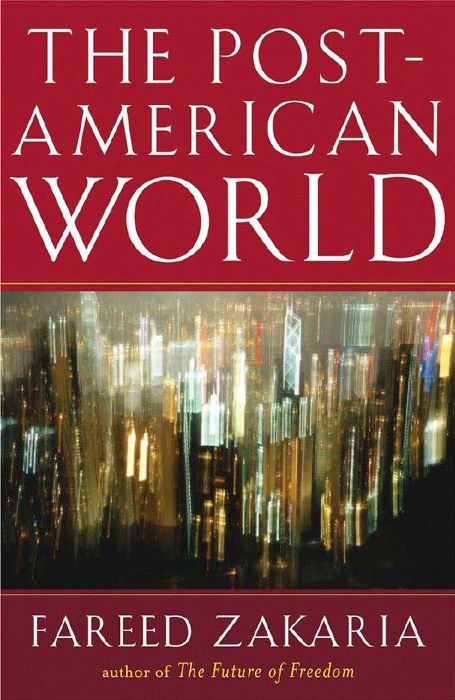Books
Fareed Zakaria
The Post-American World
What happens when the world’s most powerful nation is no longer unrivaled, but instead must navigate a landscape filled with rising powers? In The Post-American World, Fareed Zakaria explores the profound global shifts that are redefining America’s role—not as a story of American decline, but as a story of “the rise of the rest.”
Zakaria’s central thesis is that the United States remains the most powerful country, but its relative influence is diminishing as other nations—especially China, India, Brazil, and Russia—gain economic and political strength. He traces three major power shifts over the last 500 years: from the Renaissance’s rise of the West, to America’s emergence as a superpower, and now to a world where multiple countries are asserting themselves on the global stage. This “rise of the rest” is producing new economic giants, technological leaders, and cultural innovators outside the United States, fundamentally altering the balance of global power.
The book examines how the U.S., by championing free-market capitalism and globalization, has ironically enabled other nations to catch up. Zakaria argues that the tallest buildings, largest dams, and most advanced technologies are now often found outside America, fueling political confidence and national pride in emerging powers. He also discusses the challenges this shift poses for international organizations and the U.S. itself, including the need to adapt to a world where it can no longer dictate terms but must collaborate and compete with a wider range of actors.
Zakaria devotes special attention to China, analyzing its gradual reforms, pragmatic philosophy, and non-confrontational foreign policy, which have enabled it to modernize without provoking major backlash. He contrasts this with America’s more interventionist approach and warns that U.S. attitudes risk becoming more insular and distrustful as its dominance is challenged. Throughout the book, Zakaria urges the United States to understand and adapt to these new realities, emphasizing the importance of flexibility, openness, and engagement in a multipolar world
The Post-American World stands out for its clear-eyed, balanced perspective on global change. Zakaria’s analysis is not about American decline, but about the opportunities and challenges of a world where power is more widely distributed. His insights offer a roadmap for how the U.S. and other nations can thrive in a truly global era—one marked not by the end of American influence, but by the emergence of a more complex, interconnected international system.

